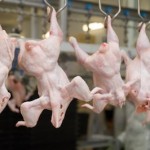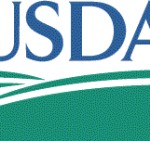Senator Chuck Schumer (D-NY) called on the FDA this week, asking for more inspections on food warehouses. Last year the FDA found "squalid" conditions in 90 warehouses that hold food that is shipped to consumers. In a press release, Schumer said, "at the end of 2014, the FDA quietly revealed hundreds of food safety violations at food processing facilities over the course of the year, and everyone from restaurant-goers to owners are appalled by some of the disgusting conditions at warehouses that supply our food. Reports of the filthy conditions at some of these warehouses sound like a page straight out of Upton Sinclair's 'The Jungle'." Some of the issues in those warehouses were dead and alive rats and birds, and rodent feces next to the food. The FDA inspects "high risk" facilities … [Read more...]
Food Safety Violations Found at Kansas Prisons
Inspections conducted at prisons in Kansas by the Kansas Department of Corrections has found consistent food safety violations in the prison system's kitchens. Almost 340 inspections conducted between January, 2013 and July 2014 at 19 facilities found repeated deficiencies and noncompliance. It is considered cruel and unusual punishment to not take adequate care of prisoners, who are under complete government control. In addition, when outbreaks occur, taxpayer money is then spent giving medical care to prisoners and investigating the problem. Lawsuits against prisons have been filed and won by the families of prisoners who have been sickened in outbreaks at prisons and jails. The violations recorded in the inspections included not keeping proper temperature logs, not having inmate … [Read more...]
USDA Sends HIMP Poultry Rule to OMB
The USDA has submitted a draft final version of the HAACP Based Models Project (HIMP), the Modernization of Poultry Slaughter Inspection Rule to the Office of Management and Budget today. That rule has been criticized from everyone from food safety advocates to worker's unions. Food & Water Watch does not like this rule, which would reduce the number of USDA inspectors in poultry slaughter plants and replace them with company employees. Line speeds for poultry carcass inspections will be increased to 175 birds per minute, which critics claim is much too fast for any reasonable inspection. The industry will gain at least $260 million every year because of fewer regulations, increased production, and no guarantees of food safety. And there is concern that employees may not be as … [Read more...]
Food & Water Watch Criticizes USDA Meat Inspection Plans
Tony Corbo of Food & Water Watch states that the USDA is "dismantling the meat inspection system as we know it." Information received through the Freedom of Information Act from USDA's FSIS had a spreadsheet with the number of temporary inspectors hired and where they are working. Last December, FSIS posted "As the Food Safety and Inspection Service looks to transition through modernization and implementation of the New Poultry Slaughter Inspection System, the Agency is announcing temporary Food Inspector positions to facilitate the transition and to help ensure seamless implementation should the Agency decide to proceed with implementation of the new system." That new system, commonly known as HIMP, has been heavily criticized by many consumer, food safety, and worker safety … [Read more...]
Canada Wants Option to Fine Meat Plants for Violations
The Canadian government wants to have the power to fine meat processing plant that violate food safety rules, according to CTVnews. Lisa Murphy, a CFIA spokeswoman, said that "these proposed new fines demonstrate our commitment to ensuring that Canada's stringent food safety requirements are being followed." Now, food inspectors can only issue written warnings, or can suspend a facility's license and shut it down, as is the case in the United States. This proposed measure may have been prompted by the huge recall of beef products from the now defunct XL Foods plant in 2012. Beef from that facility caused an E. coli 0157:H7 outbreak that sickened 18 people. The proposed fines range from $2,000 to $15,000. The meat packing industry is questioning why they are being singled out, and why … [Read more...]
Want to See How Fast 175 Birds Per Minute Is?
Many consumer and food safety advocates are angry about the proposed HAACP-Based Inspection Models Project (HIMP) for poultry inspection. That model shifts responsibility for inspecting poultry from government to corporations. In addition to having employees inspect the birds, line speeds will be increased from 140 birds per minute to 175 birds per minute. It's easy to talk about how increasing line speeds will increase worker injuries and make it harder for anyone to see problems with carcasses. It's another thing to actually watch birds fly by at the rate of 175 per minute. Inspectors are supposed to look at the birds for problems such as feces, feathers, lungs, oil glands, trachea and bile on the carcass. At this rate of speed, finding these issues will become next to impossible, … [Read more...]
Hawaii Bakery Fined $20,000 for Violations of Food Safety Rules
The Hawaii State Department of Health has reached an agreement with Kanemitsu Bakery for $20,000 over violations of rules designed to protect public health and prevent adulterated food products from being sold under poor sanitary conditions. The bakery is located in Kaunakakai on the island of Molokai. The bakery's food establishment permit was suspended in April 2012 for many health code violations and for not complying with DOH orders to stop all sales of products. An inspection on June 20, 2012 revealed serious deficiencies in the "maintenance and manufacturing practices conducted at the facility," according to the report. The bakery remained closed until mid-November 2012 after failing many health inspections. Gary Gill, DOH deputy director of Environmental health said in a … [Read more...]
Retail List for Rancho Feeding Recalled Beef Expanded
The retail list for places that most likely sold the Rancho Feeding Corporation beef that was made from diseased animals and marketed without federal inspection has been expanded. Product specific information about the recalled meats can be found at the USDA web site. In addition to the retail locations posted earlier this week, more are added. All of these locations are in California. There is no word on the retail locations in Florida, Illinois and Texas that probably sold the recalled meats. The meats were probably sold at Los Mexicanos on High Street in Oakland, Los Primos and Mi Ranchito on Foothill Blvd. in Oakland, La Esmeraldo on Market Street in San Pablo, Azteca Market on 4th Street in San Rafael, and Carolina Wild on Aero Drive in Santa Rosa. If you purchased the … [Read more...]
Food & Water Watch Exposes USDA Inspection Staff Shortages
Food & Water Watch has uncovered USDA inspection staffing shortages and has sent a letter to Secretary Tom Vilsack, asking him to investigate this issue. The new policy at the government agency is to hire temporary meat and poultry inspectors instead of full-time permanent inspection personnel. Wenonah Hauter, executive director of Food & Water Watch said in a statement, "we believe that the USDA has put food safety in jeopardy by this reckless policy. This policy was hatched so the agency could implement its 'Filthy Chicken Rule', which deregulates poultry inspections - a move so fraught with controversy that it has yet to be finalized. What the USDA has done is put the entire meat and poultry inspection system on the brink of collapse." The policy began in May 2012, right … [Read more...]
Food & Water Watch Skewers USDA Again on Salmonella Plans
Wenonah Hauter, Executive Director of Food & Water Watch, has responded to USDA's claims that their email telling inspectors to not interfere with industry collection of Salmonella data was appropriate. In a statement she said that, "what was troubling about the email was that it told the district managers that the purpose of the data collection was for the industry to develop its own voluntary pathogen performance standards that it was going to enforce on poultry processing plants. It went on to say that FSIS inspection personnel assigned to the plants were not to interfere with the National Chicken Council data collection and that they had no right to look at the data that was collected. "In other words, the poultry industry would create the standards for pathogen levels in … [Read more...]









